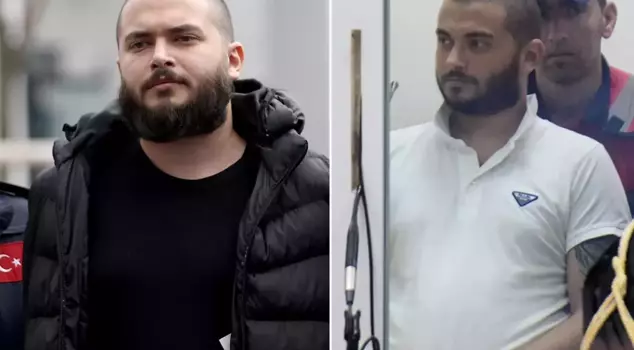
03.11.2025 09:02
While Faruk Fatih Özer, the founder of Thodex, was found dead in his prison cell, the General Directorate of Prisons and Detention Houses responded to claims reported in the media. The allegations that Özer hanged himself with a rope were denied, and the statement included the following: "It has been determined that he tied the sheets and bath towel, which he was allowed to keep in his cell under the regulations, together to hang himself."
The founder of the cryptocurrency exchange Thodex, Faruk Fatih Özer, was found dead hanging from a sheet on the bathroom door in his single cell in prison.
CLAIMS THAT ÖZER HANGED HIMSELF HAVE BEEN DENIED
While the Tekirdağ Chief Public Prosecutor's Office has launched an investigation into the incident, the General Directorate of Prisons and Detention Houses (CTE) made a statement regarding the claims of Özer's suicide. In the statement denying the claims that Özer hanged himself, the CTE stated, "It has been determined that he tied the sheet and bath towel, which are permitted to be kept in his room under the Regulation on Items and Materials That Can Be Kept in Penal Institutions, to hang himself."
"UNFOUNDED NEWS AND COMMENTS"
In the statement, which mentioned that the institution's personnel immediately intervened and called health teams after the incident, the following expressions were included: "After the incident, the institution's personnel intervened immediately and called health teams, and it was understood during the examination that the sentenced individual Faruk Fatih Özer had passed away. Our General Directorate has assigned an inspector to conduct the necessary investigations. We kindly request that no attention be paid to unfounded news and comments regarding both the materials used in the suicide act and the manner in which the incident occurred."
11 THOUSAND YEARS OF PRISON SENTENCE
Faruk Fatih Özer was sentenced to 11,190 years and 6 months in prison for the crimes of "establishing and managing an organization and being a member of an organization," "qualified fraud," and "money laundering" in the case he was tried. The indictment prepared by the Anadolu Chief Public Prosecutor's Office stated that the company named "Thodex" was established by Faruk Fatih Özer with a capital of 400,000 lira, and it was noted that this platform deceived its victims with fraudulent behavior regarding their business and transactions.
For 21 defendants, including Faruk Fatih Özer, a prison sentence ranging from 12,164 years to 40,562 years was requested for the crimes of "establishing and managing an organization for the purpose of committing a crime," "fraud by using information systems as a tool of banks or credit institutions," and "fraud by merchants or company executives and cooperative managers and money laundering of assets derived from crime." Faruk Fatih Özer, the founder of the cryptocurrency exchange Thodex, who was wanted as a fugitive defendant, was captured in Albania on August 30, 2022.
HE WAS ARRESTED ON APRIL 23, 2023
After the return decision of the Durrës Court of Appeals in Albania, Özer was brought back to the country on April 20, 2023, and was arrested by the duty judge at the Anadolu Justice Palace on April 23, 2023. The Anadolu 9th High Criminal Court, which concluded the case on September 7, 2023, sentenced Özer to 11,190 years and 6 months in prison for the crimes of "establishing and managing an organization and being a member of an organization," "qualified fraud," and "money laundering."
After the decision, the case was taken to the Istanbul Regional Court of Appeals (appeal). The 22nd Criminal Chamber, which examined the case, overturned the local court's ruling and ordered the release of Faruk Fatih Özer for the crime of "establishing an organization for the purpose of committing a crime." However, it was decided to continue his detention for the other crimes. The case, which was sent back to the local court, was reopened for the trial of 21 defendants, including Özer.